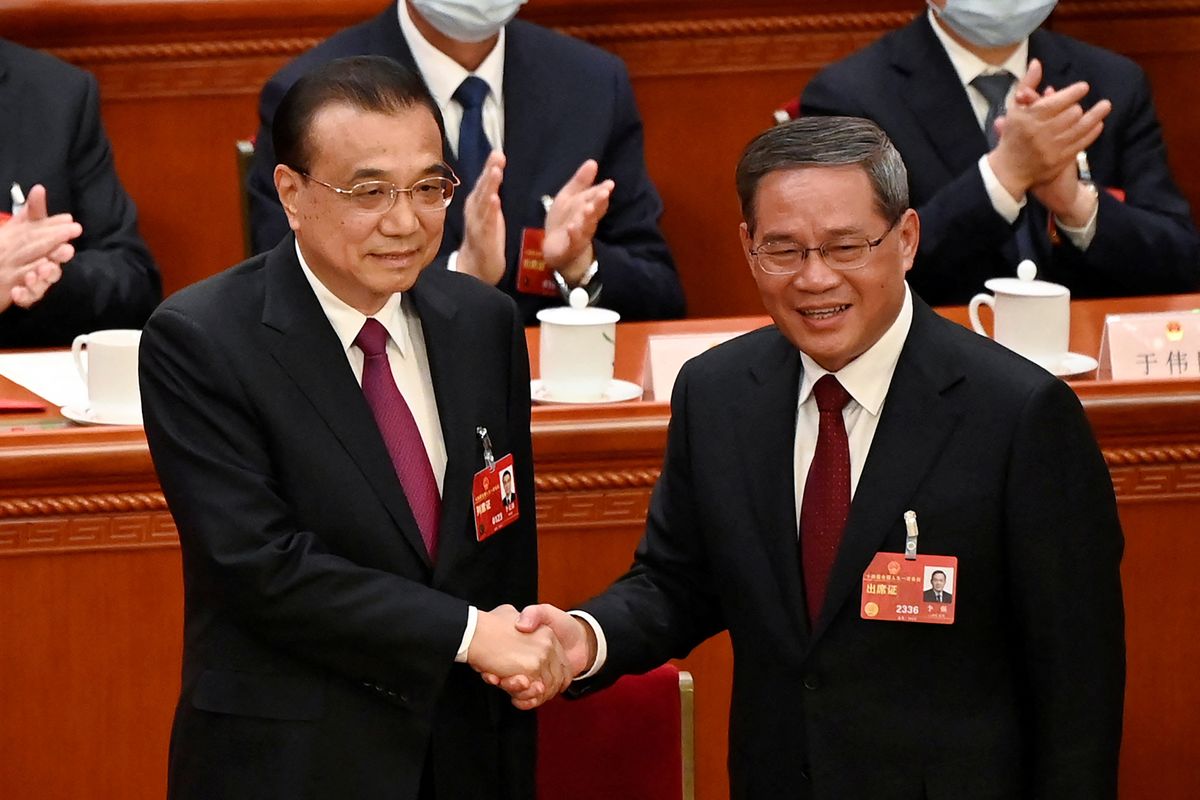China's new Premier Li Qiang is faced with reviving the economy
China has a new premier in town, and his name is Li Qiang.

A few minutes every morning is all you need.
Stay up to date on the world's Headlines and Human Stories. It's fun, it's factual, it's fluff-free.
The backstory: China's economy is still recovering from the impact of years-long COVID restrictions, and it faces more challenges amid growing tensions with Western nations. And this year, China's set to get a new premier, the number two position in the country. The new premier will replace the outgoing Li Keqiang, who's held the position since 2013. One of the role's primary responsibilities is overseeing the State budget and economy.
More recently: Last year, China's economy grew by about 3%, which is pretty low by previous standards and short of the official target of 5.5%. This year, on the opening day of parliament, the country announced a modest 2023 growth target of around 5%, which is the lowest target in almost 30 years.
The development: China has a new premier in town, and his name is Li Qiang. He just took over the position from his predecessor on Saturday.
Li's first international debut as China's premier will be on Monday during a traditional media Q&A session after the parliamentary session ends. Some experts have predicted a challenging adjustment period for Li since he lacks experience in the central government. But his business-friendly reputation and close relationship with Xi could give him the ability to make some serious changes.
His primary challenge this year is to exceed the growth target without causing inflation or adding to China's debt. It's a tricky balancing act. Although China hasn't indicated any plans for a stimulus to nurture growth, potential setbacks could force action. For example, if exports collapsed or the property sector weakened, he may have to get creative to keep things on track.
Key comments:
"My reading of the situation is that Li Qiang will have a lot more leeway and authority within the system," said Trey McArver, co-founder of consultancy Trivium China.
"Whether a strengthened Xi and increasing centralisation is sufficient to overcome these problems – or perhaps make them worse – is unknown and perhaps not knowable at present," said Ian Chong, a political scientist at the National University Singapore to the BBC, referring to the challenges China is currently facing.
"Policymaking will probably become more Xi-centric and less flexible, simply because of who is occupying the premier's role," said Christopher Beddor, deputy China research director at Gavekal Dragonomics, before the NPC voted on Saturday. "With Li Qiang, it's clear that his function will be to turn Xi's ambitions and inclinations into a policy agenda, not to provide a publicly contrasting emphasis or perspective."
"The overhaul of the state is one more way for Xi Jinping to make sure he is controlling all the levers of power, which will leave little space for Li Qiang to operate independently," said Alicia Garcia Herrero, chief Asia-Pacific economist at Natixis SA.




Comments ()